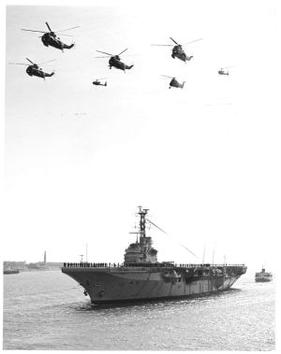By Desmond Woods*
HMS Bulwark and HMS Albion were sold to Brazil this week. They were valuable national and European maritime assets, and not just for high end amphibious warfare. There are many situations where their capability at sea is irreplaceable.


